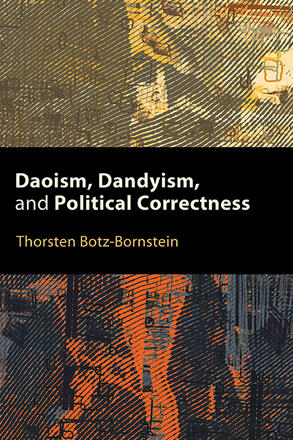
Daoism, Dandyism, and Political Correctness
Alternative formats available from:
Argues that Daoism and dandyism, linked by likeminded philosophies of “carefree wandering,” deconstruct the puritanism and political correctness sought by Confucianism, Victorianism, and contemporary neoliberal culture.
Description
How would Zhuangzi, a Chinese philosopher who lived in the fourth century BCE, have reacted to the recent linguistic reforms commonly referred to as "political correctness"? Zhuangzi was a language skeptic, which means that he did not believe that language could convey the true meanings of the world. Might Zhuangzi have argued that political correctness creates but a dream world made of rules, policies, and words—no more real than when he "dreamt he was a butterfly"? Written in a provocative tone, this book looks at political correctness through the lens of ancient Chinese philosophy, as well as through Brummell's and Wilde's aesthetic philosophy of dandyism. Several scholars have established links between Zhuangzi and dandyism, and Wilde wrote one of the first reviews of Herbert Giles's English translation of the Zhuangzi. Like Daoism, dandyism does not engage in a Confucian "correction" of language, instead preferring aimless roaming and rambling. The Daoist "carefree wanderer" is a flâneur, and both Daoist and dandy deconstruct the puritanism and correctness sought by Confucianism, Victorianism, and our contemporary neoliberal culture. Instead of seeking to induce correct opinions, they seek to liberate the mind.
Thorsten Botz-Bornstein is Professor of Philosophy at the Gulf University for Science and Technology in Kuwait. His previous books include The Philosophy of Lines: From Art Nouveau to Cyberspace; The New Aesthetics of Deculturation: Neoliberalism, Fundamentalism, and Kitsch (with Olivier Roy); and Veils, Nudity, and Tattoos: The New Feminine Aesthetics.
Reviews
"Intriguing, thought-provoking, and engaging, this book conducts a philosophical analysis of a sensitive political issue. It not only promotes a textual study of Daoist philosophy, but, more importantly, shows how Daoist philosophy can be relevant to understanding the vast 'language correction project' of the present moment. The intellectual courage and philosophical diversity are inspired and embodied." — Robin R. Wang, author of Yinyang: The Way of Heaven and Earth in Chinese Thought and Culture